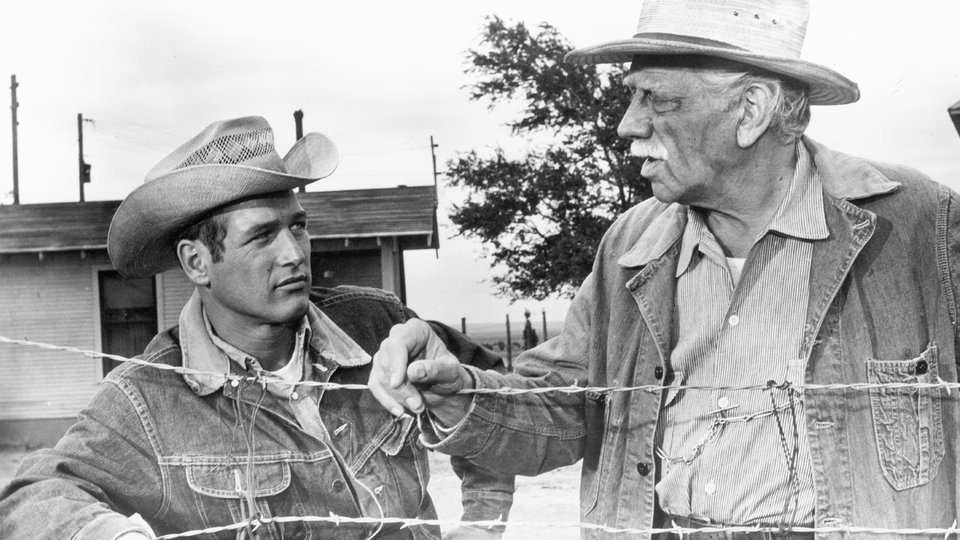Hud

An aging rancher (Melvyn Douglas) faces an uncertain future embodied by his amoral son (Paul Newman).
Hud is one of those rare movies that gets better on repeat viewings. The cinematography, performances, and story reveal new details with every look, while the film as a whole still resonates.
James Wong Howe’s Oscar winning crisp black and white photography is both beautiful and effective. The barren backgrounds and empty skies give a sense of grandeur while forcing your attention to the characters and props which don’t so much move through the scenery as cut through it.
Cutting the biggest swath of all is Paul Newman as the titular character, Hud Bannon. His performance as the distillation of disaffected youth is both believable and, more importantly, relatable. Whether intentional or not, Newman tapped into an angst that transcends generations and is still being explored today in films like Fight Club. While his performance does go a bit over the top at times, it’s still something to behold.
Newman is backed by an impressive, and award winning, supporting cast. Melvyn Douglas won the Best Supporting Actor Oscar for his amazing performance as Hud’s gravelly voiced father. He’s the perfect reflection of a generation disgusted by their own offspring, and offspring whose rejection of their parent’s core values leaves their parents facing an uncertain future.
Patricia Neal won the Best Actress Oscar for her role as the Bannon family housekeeper. She brings a sultry world-weariness to her part, and easily manages to avoid being overshadowed by Newman and Douglas.
Hud resonates. Director Martin Ritt packs the film with haunting imagery, and then tops it off with a closing sequence that’s amazingly eloquent in its simplicity. The result is an experience that stays with you long after the credits roll.